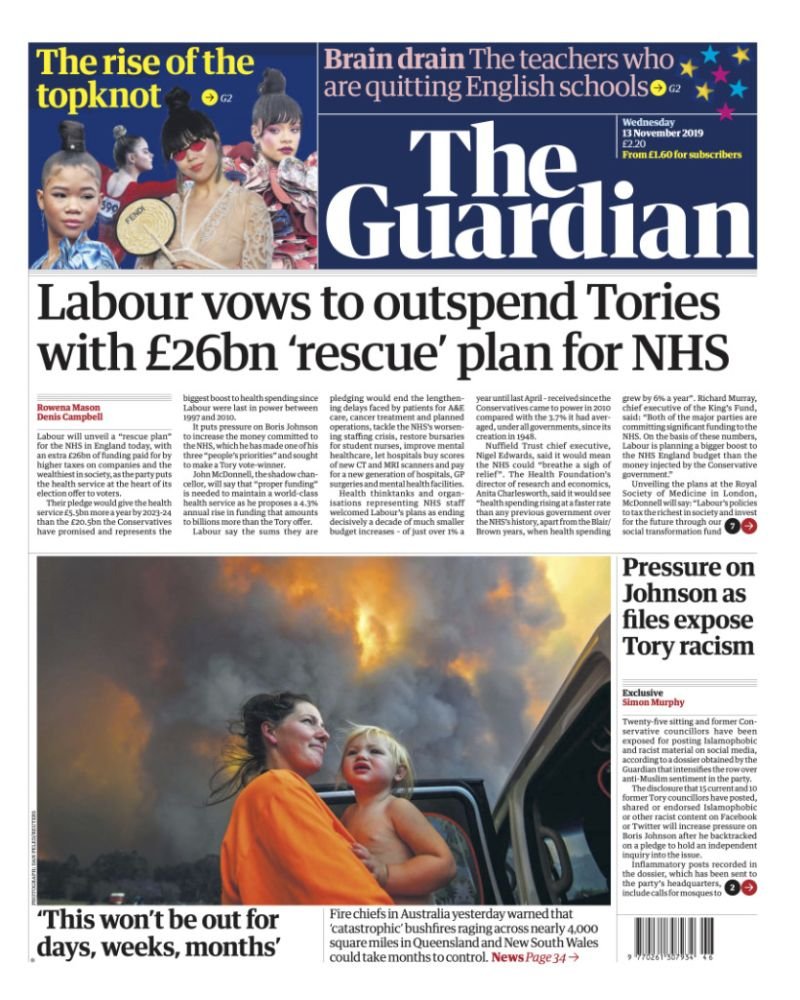The Guardian UK is one of the United Kingdom’s most prominent and respected news organizations, known for its in-depth reporting, editorial independence, and a history that spans over two centuries. It has built a reputation not only as a source of news but also as a voice that advocates for progressive values and transparent journalism. Founded in 1821 as The Manchester Guardian, it evolved from a regional paper into a globally recognized publication that aims to provide high-quality journalism across a wide array of topics.
What Type of Publication is The Guardian UK?
The Guardian is a daily newspaper that offers coverage in both print and digital formats. It’s renowned for its investigative journalism and comprehensive news coverage. In addition to daily news, The Guardian also publishes The Observer, the UK’s oldest Sunday newspaper. Unlike many other newspapers, The Guardian has adopted a unique funding model, prioritizing independence from corporate ownership and political affiliations. The Guardian is frequently associated with in-depth reports and long-form journalism, making it stand out as a publication dedicated to thoughtful reporting.
When Was The Guardian UK Founded?
The Guardian was founded in 1821 in Manchester as a response to political and social issues, particularly after the Peterloo Massacre of 1819. Initially called The Manchester Guardian, it aimed to provide a voice for the city’s reform-minded middle class. Over time, it evolved into a national paper, moving its headquarters to London in 1964 and eventually dropping “Manchester” from its name in 1959, becoming simply The Guardian.
Who Owns The Guardian UK?
The Guardian is owned by the Scott Trust, a unique ownership structure created in 1936. The trust was established to ensure that The Guardian remained independent and maintained its journalistic integrity, free from political or commercial pressures. This structure means The Guardian has no private shareholders or proprietors, allowing it to uphold editorial independence and focus on its mission to produce quality journalism.
What Are the Primary Topics Covered by The Guardian UK?
The Guardian UK covers a broad range of topics, from breaking news to specialized areas of interest. Its primary coverage includes politics, culture, environment, technology, sports, and business. Additionally, it frequently publishes investigative reports and in-depth analyses of social justice issues, human rights, and environmental crises. The Guardian’s commitment to transparency and truth is evident in its extensive climate coverage, which has led it to stand out as a leader in environmental reporting.
How Does The Guardian UK’s Editorial Stance Compare to Other UK Newspapers?
The Guardian UK is known for its progressive editorial stance, often aligning itself with liberal values and causes, particularly regarding social issues, equality, and climate change. While it holds a more left-leaning perspective than other UK newspapers, it strives for balanced journalism and avoids endorsing any political party directly. Compared to conservative outlets like The Daily Telegraph or The Times, The Guardian presents a distinct perspective, often focusing on social justice and global humanitarian concerns.
Is The Guardian UK Known for a Particular Political Alignment?
Yes, The Guardian UK is generally known for its liberal or left-leaning alignment. It supports progressive social policies, environmental activism, and often highlights issues concerning human rights, healthcare, and equality. However, despite its political alignment, The Guardian has a reputation for holding those in power accountable, regardless of political affiliation, and aims to provide factual reporting.
How is The Guardian UK Funded?
The Guardian is funded through a combination of reader contributions, subscriptions, and advertising, as well as support from the Scott Trust. Unlike many news organizations, The Guardian UK does not have a paywall, which allows free access to its content. Reader contributions play a significant role, as many readers choose to support the paper’s mission by donating, especially those who value its independent stance.
What Distinguishes The Guardian UK’s Digital Presence from Its Print Version?
The Guardian UK has a substantial digital presence that includes a website and mobile app, alongside its print publication. Its online edition features multimedia content, such as videos, podcasts, and interactive pieces that complement its articles. The Guardian has also prioritized accessibility with a user-friendly website and ad-free option for subscribers, which enhances the reader experience and ensures inclusivity in its approach to global news consumption.
Does The Guardian UK Have a Global Audience, or Is it Mainly Focused on the UK?
While The Guardian started as a British publication, it has grown to attract a global readership, particularly through its online presence. The Guardian has separate editions for the US and Australia, tailored to their respective regions, which reflects its commitment to engaging an international audience. With its reputation for quality journalism, The Guardian has garnered readers from all over the world who value its investigative work, editorial independence, and commitment to progressive reporting.
How Has The Guardian UK Influenced Journalism in the UK and Beyond?
The Guardian has significantly influenced journalism in the UK and globally by setting high standards in investigative reporting and ethical journalism. It has broken numerous stories with international impact, such as its collaboration with Edward Snowden, revealing widespread government surveillance in the US and UK. The Guardian’s fearless approach to challenging powerful entities has set an example for transparency in the media, and its decision to make content freely available online has influenced the industry’s approach to accessible news.
In summary, What is The Guardian UK? It is a unique, reader-supported publication known for its commitment to independent journalism, progressive values, and impact on global media. The Guardian UK continues to shape conversations on major issues, making it a crucial part of the modern journalistic landscape.



